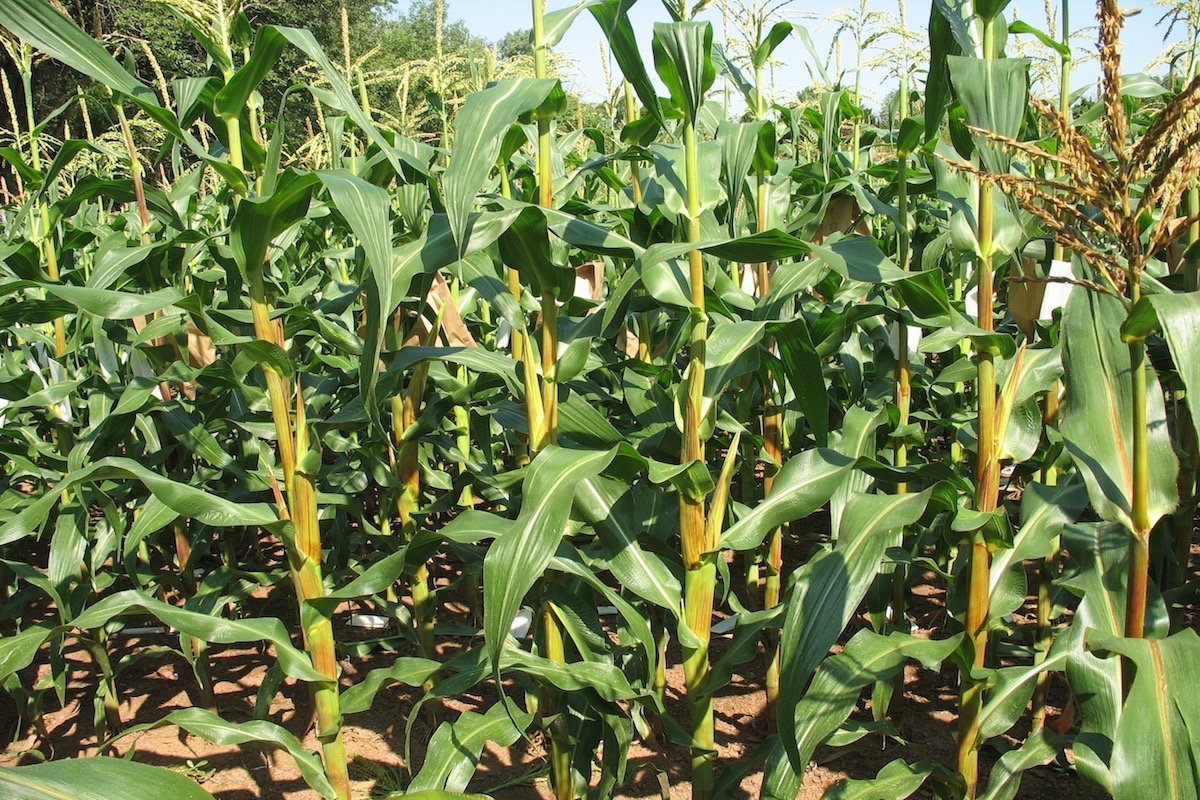Dooner: Improving pollination of corn and other crops

Pollen genes mutate naturally in only some strains of corn.
According to Rutgers-led research, this discovery may lead to better breeding of corn and other crops. Distinguished Professor Emeritus Hugo Dooner in with collaboration Dr. Charles Du from Montclair State looked at gene mutations that arise spontaneously in corn plant pollen. “We found that spontaneous mutations in corn genes arise relatively frequently in the pollen of some but not all lines,” Dooner said. Pollen grains are the male gametes, or reproductive cells, in corn plants. The scientists estimated there were several mutations per gene per million pollen grains, according to their study in the journal Proceedings of the National Academy of Sciences.
In all organisms, mutations that happen spontaneously provide the raw material for natural selection and evolution. But mutations are so infrequent that scientists use special “mutation accumulation” lines to study them. The Rutgers-led team found that the mutations in pollen were caused primarily by mobile retrotransposons, which are like retroviruses in mammals, within the corn plant. Retroviruses invade cells, convert their viral RNA to DNA and merge it with the cells’ DNA.
Next steps are to investigate whether retrotransposon-induced mutations cause the genetic instability in corn lines previously reported by breeders, and whether activating retrotransposons in corn and other important crops could benefit them.
Rutgers co-authors include Qinghu Wang, Jun Huang, Yubin Li and Limei while working in the Dooner Lab at the Waksman Institute of Microbiology.